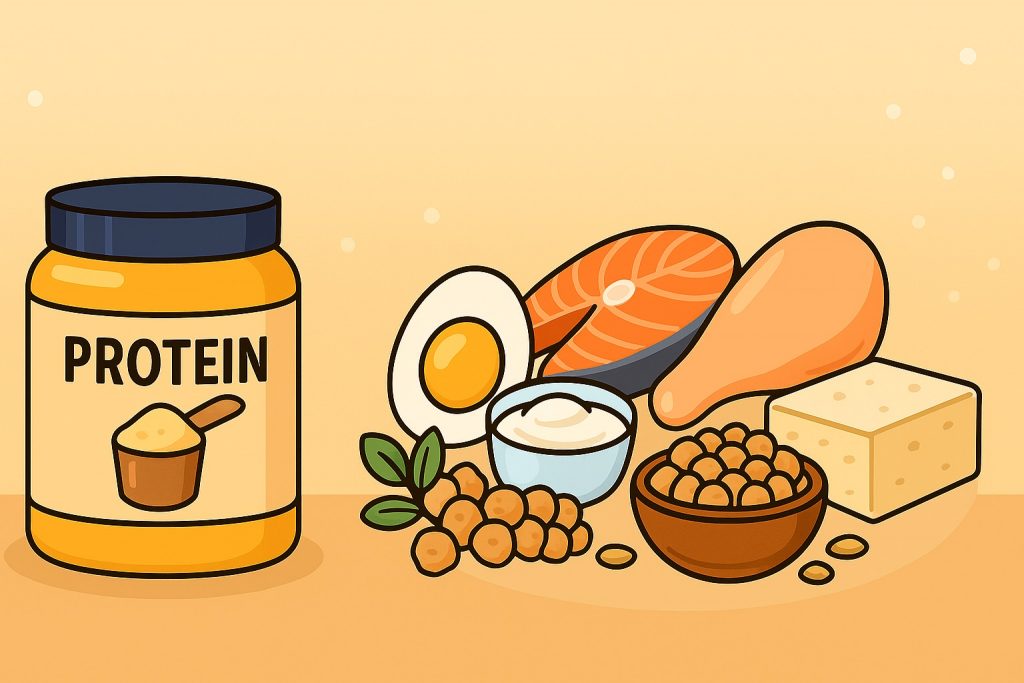Protein is a vital nutrient that supports muscle growth, repairs tissues, and helps maintain a healthy immune system. While protein powders and supplements are widely available and popular among athletes and fitness enthusiasts, many people can meet their daily needs using natural foods. This article explores both the role of protein and the best natural sources to replace or reduce reliance on supplements.
Why Protein Matters
Protein is made up of amino acids, the building blocks of the body. It is essential for:
- Building and maintaining muscle
- Repairing body tissues
- Supporting enzymes and hormones
- Strengthening hair, nails, and skin
- Boosting metabolism
Protein is especially important for children, athletes, older adults, and those recovering from illness.
How Much Protein Do You Really Need?
The average adult needs about 0.8 grams of protein per kilogram of body weight per day. However, needs increase with physical activity, age, or specific goals like weight loss or muscle gain.
Rather than focusing only on supplements, many people can get all their protein from real foods when planned properly.
Popular Protein Supplements
Protein powders like whey, casein, soy, and pea protein are concentrated sources used for convenience. They can be helpful for athletes or people with limited appetites or dietary restrictions. However, overreliance on supplements may lead to nutrient imbalances or digestive issues in some cases.
That’s where natural alternatives come in.
Natural Protein Alternatives
Many whole foods are rich in high-quality protein. Some excellent sources include:
Animal-Based Sources:
- Eggs – Contain all essential amino acids and are easily digestible
- Chicken breast – Lean and protein-rich
- Greek yogurt – High in protein and also provides calcium
- Fish (like salmon or tuna) – Rich in protein and omega-3 fatty acids
Plant-Based Sources:
- Lentils – 18g of protein per cup, great for soups and stews
- Chickpeas – Versatile and protein-packed
- Tofu and tempeh – High in protein and great meat alternatives
- Quinoa – A complete protein grain
- Nuts and seeds – Provide protein, healthy fats, and fiber
These natural options also bring vitamins, minerals, and antioxidants that supplements often lack.
Making the Switch: Tips for a Balanced Diet
If you want to reduce or eliminate protein powders:
- Include a protein source in every meal
- Combine plant foods to ensure a complete amino acid profile
- Prepare meals in advance to avoid relying on quick-fix powders
- Use smoothies with nut butter, seeds, or oats instead of processed powders
Whole food sources are not only nutritious but also more satisfying and sustainable in the long term.
Glossary
- Protein – A macronutrient made of amino acids, essential for body structure and function.
- Amino acids – The building blocks of protein, necessary for growth and repair.
- Protein powder – A concentrated supplement typically made from whey, soy, or other protein sources.
- Complete protein – A food that contains all nine essential amino acids.
- Omega-3 fatty acids – Healthy fats that support heart and brain health.


